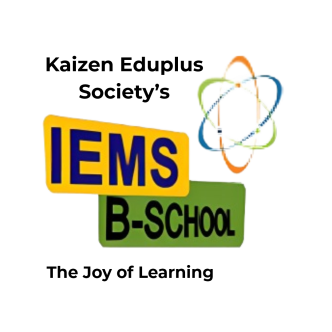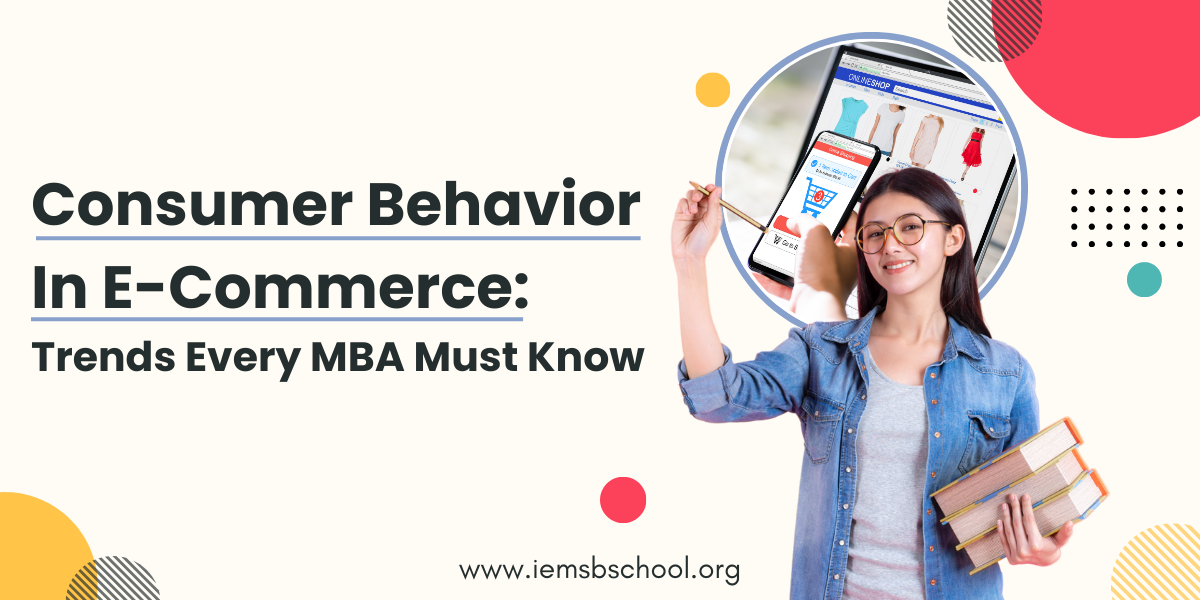The rapid growth of e-commerce has transformed the way businesses interact with consumers. Today, shopping online is not just about convenience—it’s about personalization, trust, and evolving digital experiences. For MBA students, especially those aiming to specialize in marketing, finance, or strategy, understanding consumer behavior in e-commerce is crucial. This knowledge not only enhances employability but also prepares future leaders to design effective digital business models.
In this blog, we’ll explore the key trends in consumer behavior shaping the e-commerce landscape and why they matter to MBA students.
1. Personalization is No Longer Optional
Modern consumers expect tailored experiences. From personalized product recommendations to AI-driven chat support, shoppers want brands to understand their preferences. Studies show that consumers are more likely to purchase when they feel the buying experience has been curated for them.
For MBA students, personalization highlights the importance of data analytics, consumer insights, and CRM (Customer Relationship Management). Knowing how businesses collect and use consumer data ethically can help future managers drive higher customer satisfaction and loyalty.
2. Mobile-First Shopping
With smartphones becoming central to daily life, mobile commerce (m-commerce) has emerged as the leading force behind online retail growth. Consumers browse, compare, and purchase products directly from apps or mobile-friendly websites.
For students, this trend emphasizes the need to understand mobile marketing strategies, user experience design (UX), and digital payment ecosystems. A business that fails to optimize its mobile presence risks losing a large share of its audience.
3. The Power of Social Commerce
Platforms like Instagram, Facebook, and TikTok are no longer just for entertainment—they’ve become shopping hubs. Through social commerce, shoppers can find products, check reviews, and make purchases without exiting the app.
MBA graduates must recognize how influencer marketing, user-generated content, and community-driven engagement shape consumer trust. Social commerce lets users browse, review, and purchase items all within a single app.
4. Consumer Trust and Securityl
E-commerce has grown rapidly, but so have concerns about data security, privacy, and fraud. Today’s buyers demand secure payment systems, transparent policies, and trustworthy return options.
This trend highlights the intersection between finance, operations, and marketing in e-commerce. MBA students should learn how businesses can build digital trust through secure technology, clear communication, and compliance with global data protection standards.
5. The Role of Sustainability in Buying Decisions
Consumers today are increasingly conscious of sustainability. From eco-friendly packaging to ethical sourcing, buyers prefer brands that align with their values. For example, companies highlighting their commitment to environmental or social causes often attract stronger customer loyalty.
For MBA students, this trend emphasizes the importance of corporate social responsibility (CSR) and sustainable business strategies. Businesses that incorporate sustainability are not only meeting consumer expectations but also securing long-term competitive advantage.
6. Omni-Channel Shopping Behavior
Customers today do not confine their choices to a single channel. Shoppers often explore products online, check them in-store for a hands-on experience, and finally complete the purchase through a mobile app. This omni-channel approach requires businesses to provide seamless experiences across platforms.
Future managers must understand supply chain integration, digital transformation, and customer journey mapping to meet the demands of the connected consumer.
7. Subscription Economy and Loyalty Programs
From streaming services to beauty boxes, subscription-based models are reshaping how consumers buy products. Customers enjoy the predictability and exclusivity of subscription plans, while businesses benefit from recurring revenue.
MBA students should study the economics of subscription models, customer lifetime value (CLV), and retention strategies to help businesses thrive in competitive markets.
8. Influence of Emerging Technologies
Technologies like Artificial Intelligence (AI), Augmented Reality (AR), and Virtual Reality (VR) are reshaping e-commerce. AI chatbots, virtual try-on features, and interactive shopping experiences are helping bridge the gap between offline and online retail.
Understanding these technologies is essential for MBAs as they will play a crucial role in digital innovation, product strategy, and customer engagement.
Conclusion
E-commerce today is far more than just convenience—it is an evolving ecosystem driven by personalization, mobile-first experiences, social commerce, sustainability, and emerging technologies. For MBA students, understanding these shifts is vital to creating customer-focused strategies, making data-driven decisions, and leading businesses in the digital era.
To gain this competitive edge, the choice of institution plays a key role. The Best MBA College In Hubli, IEMS B-School, prepares students with a strong blend of theoretical knowledge, practical exposure, and industry insights to excel in today’s fast-changing business world.
Discover more management insights and career-oriented articles on the official IEMS blog.





